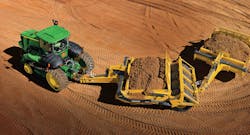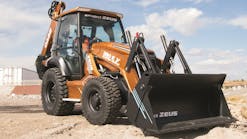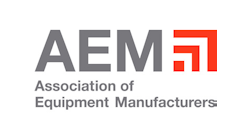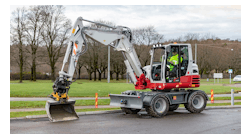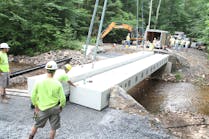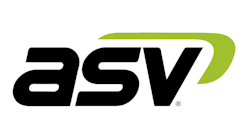“Waste not, want not.”
This is a proverbial saying that was first recorded in the year 1772. There is also a similar, even more alliterative version that was coined in the year 1576 that said, “Willful waste makes woeful want.”
“Waste not, want not” is a much catchier phrase, although in my mind, not quite as elegant as its predecessor. And it means if you use a commodity or resource carefully and without extravagance, you will never be in need.
“Waste not, want not.” This is a proverbial saying that was first recorded in the year 1772. There is also a similar, even more alliterative version that was coined in the year 1576 that said, “Willful waste makes woeful want.” “Waste not, want not” is a much catchier phrase, although in my mind, not quite as elegant as its predecessor. And it means if you use a commodity or resource carefully and without extravagance, you will never be in need. [text_ad] The word “waste” itself can be a verb, which means to use or expend something carelessly or to no purpose. Or it can be a noun, meaning unusable material that is not wanted or the remains or byproducts of something. Technically and grammatically speaking, is it still waste even if you’ve found a use for the waste? You may be thinking “Stop wasting my time and tell why there is all this talk of waste!” Because Forester University. One of Forester U’s best presenters, David Hein, vice president of transportation and the principal engineer at Applied Research Associates, will be the expert behind the upcoming webinar, “Using Wastes and By-Products in Road Construction.” The US Federal Highway Administration (FHWA) and agencies around the world have long permitted the use of recycled wastes and other by-products in roadway construction to improve performance, reduce costs, improve sustainability, and reduce environmental impact. Are you using wastes and by-products in your roadway construction? And if not…should you be?In this webinar, we'll explore real-world examples of waste and by-product use in roadway construction and their historical performance, benefits, and challenges in a variety of roadway applications. Within this discussion, we'll review the available waste and by-product materials used for the stabilization of subgrades, including: lignosulphates, cement, and lime materials for the stabilization of subgrades. We'll take a look at base and subbase waste and by-product materials and applications, including: recycled crushed glass, concrete and asphalt, bailed and shredded tires, plastics, construction and demolition waste, and lightweight aggregates. And we'll explore the available waste and by-product pavement surface materials and applications, including: recycled concrete, asphalt, glass, steel and blast furnace slags, shingles, engine oil, asbestos, foundry sand, and ground rubber. Within this discussion we'll review the performance of each material and how successful they are in real-world roadway applications.
Is this webinar for you? If you’re an engineer or technician involved in roadway design, construction, or maintenance, it is. Also, if you’re part of the State Department of Transportation or municipal agency personnel involved in the delivery of transportation infrastructure, a manufacturer or other producer of waste and by-products for roadway use applications, a member of a road construction trade organization, or a contractor interested in advancing roadway construction technology, it’s for you.
The webinar is on Thursday, September 24, 2015 at 2 p.m. EDT/11 a.m. PDT. Please click on this link for more information and to register. Don’t waste this opportunity!The word “waste” itself can be a verb, which means to use or expend something carelessly or to no purpose. Or it can be a noun, meaning unusable material that is not wanted or the remains or byproducts of something. Technically and grammatically speaking, is it still waste even if you’ve found a use for the waste?
You may be thinking “Stop wasting my time and tell why there is all this talk of waste!”
Because Forester University.
One of Forester U’s best presenters, David Hein, vice president of transportation and the principal engineer at Applied Research Associates, will be the expert behind the upcoming webinar, “Using Wastes and By-Products in Road Construction.”
The US Federal Highway Administration (FHWA) and agencies around the world have long permitted the use of recycled wastes and other by-products in roadway construction to improve performance, reduce costs, improve sustainability, and reduce environmental impact. Are you using wastes and by-products in your roadway construction? And if not…should you be?
In this webinar, we’ll explore real-world examples of waste and by-product use in roadway construction and their historical performance, benefits, and challenges in a variety of roadway applications. Within this discussion, we’ll review the available waste and by-product materials used for the stabilization of subgrades, including: lignosulphates, cement, and lime materials for the stabilization of subgrades. We’ll take a look at base and subbase waste and by-product materials and applications, including: recycled crushed glass, concrete and asphalt, bailed and shredded tires, plastics, construction and demolition waste, and lightweight aggregates. And we’ll explore the available waste and by-product pavement surface materials and applications, including: recycled concrete, asphalt, glass, steel and blast furnace slags, shingles, engine oil, asbestos, foundry sand, and ground rubber. Within this discussion we’ll review the performance of each material and how successful they are in real-world roadway applications.
Is this webinar for you? If you’re an engineer or technician involved in roadway design, construction, or maintenance, it is. Also, if you’re part of the State Department of Transportation or municipal agency personnel involved in the delivery of transportation infrastructure, a manufacturer or other producer of waste and by-products for roadway use applications, a member of a road construction trade organization, or a contractor interested in advancing roadway construction technology, it’s for you.
The webinar is on Thursday, September 24, 2015 at 2 p.m. EDT/11 a.m. PDT.
Please click on this link for more information and to register.
Don’t waste this opportunity!

